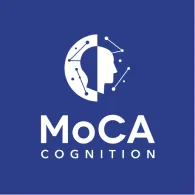Cognitive health is a crucial part of our wellbeing, encompassing our ability to remember, think, and make decisions. Mild Cognitive Impairment (MCI) represents a slight but noticeable change in these abilities. It’s a condition that can affect adults of any age, though it is more common as we grow older. Being aware of the signs of MCI is key to identifying it and taking action.
Spotting the Subtle Signs of MCI
MCI can manifest in various ways, impacting daily life subtly but significantly.
-
Memory Lapses
It may start with frequently forgetting important dates or needing to ask for the same information repeatedly. An increased reliance on reminder notes and electronic devices beyond normal use could also be a sign.
-
Language Struggles
You might find yourself struggling to follow or join conversations, stopping mid-sentence as words elude you, or incorrectly naming familiar objects.
-
Complex Task Challenges
Tasks that were once second nature, such as following a well-known recipe, managing finances, or learning new rules for a game, may become increasingly difficult.
-
Disorientation
Momentary confusion about your whereabouts in familiar settings, such as forgetting the route home from a common destination, could be indicative of MCI.
-
Poor Judgment
Making uncharacteristic decisions, whether socially or financially, may also point toward cognitive changes.
Recognizing MCI in Younger Adults
MCI isn’t exclusive to older populations. Younger individuals might experience cognitive changes due to various factors, including:
-
Stress and Sleep Deprivation
High levels of stress or inadequate sleep can impair cognitive function.
-
Health Issues
Head trauma or other health complications can trigger symptoms of MCI.
-
Performance Changes
Noticeable difficulties in completing familiar professional tasks or managing time effectively could be early indicators of MCI.
When to Seek Help
It’s crucial to pay attention to persistent changes in cognitive functions.
-
Consistent Changes
When you observe a consistent pattern of cognitive difficulties, it’s time to consider screening.
-
Early Signs
Younger adults, particularly those who have suffered head injuries or undergone significant health changes, should be vigilant.
-
Daily Impact
If you find that cognitive changes are affecting your ability to manage personal or professional responsibilities, it’s important to seek assistance.
-
Taking Action Against MCI
If you notice signs of MCI, seeking help from a healthcare provider is a proactive step toward managing your cognitive health.
-
Professional Assessment
A healthcare professional can provide a thorough evaluation to determine the presence and extent of MCI.
-
Management Strategies
With early detection, MCI can often be managed or even reversed. Healthcare providers can suggest interventions that may include lifestyle changes, cognitive therapy, or medication.
-
Ongoing Support
Regular check-ups and support from family and friends can help individuals with MCI maintain their cognitive health.
MCI is a medical condition that doesn’t have to define your life. Whether you’re in your younger years or well into retirement, being proactive about cognitive changes is crucial. By staying informed, seeking early intervention, and maintaining a healthy lifestyle, you can take significant steps to preserve and enhance your cognitive health. Remember, the path to managing cognitive changes is one you don’t have to walk alone.
